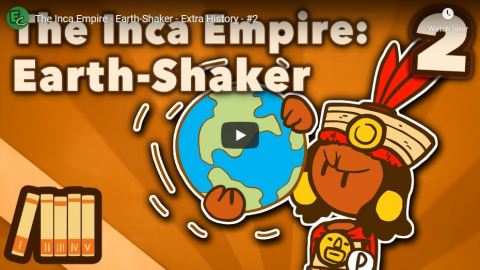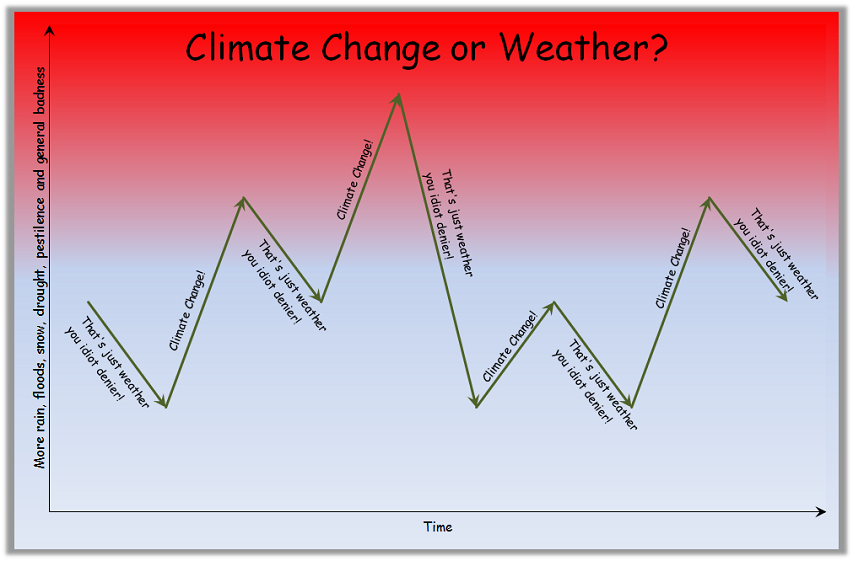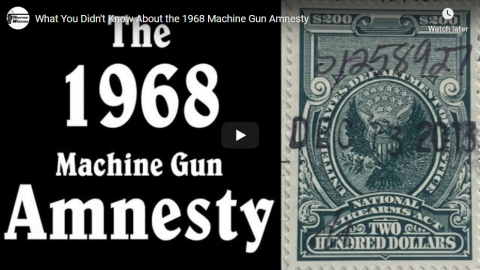Extra Credits
Published on 31 Aug 2019Join us on Patreon! http://bit.ly/EHPatreon
Pachacuti, the Earth-Shaker, was the ninth leader of the Inca and the one who took the ambitions of the city of Cusco into an all-out military campaign to expand the empire — alongside bribing and engineering and negotiating their way to expansion.
Pachacuti turned out to be a good name for this ninth ruler of the Inca, because while the name did mean “earth-shaker” it was also a philosophical concept. In Quechua, the Inca’s primary language, a pachacuti was a historic event, a cataclysm that overturns space and time, remaking the world. It was a good title for the man who would forge the Kingdom of Cusco into an empire.
September 2, 2019
The Inca Empire – Earth-Shaker – Extra History – #2
The economics of climate change policies
Tim Worstall explains the economic implications for the various demands that we consume less in order to fight climate change:
A major contention from economists is that if we decide to fight global heating in the wrong manner then we’ll make ourselves poorer than we need be. A major contention from the same economists is that if we don’t fight global heating at all then we’ll make ourselves poorer than we need be. That being the economic point about all of this, we must fight global heating in the correct manner.
The correct manner not being vast plans by bureaucracies. Instead, change market prices with the one intervention – a crowbar into the system just the once with a carbon tax – and then let the economy itself chew through the implications of that.
Do note that the argument is not “poorer than we are now”, it’s poorer in the future than we need to be in that future.
And then we’ve got the varied Green, New Deal, unsoaped hippies and socialist idiots whose demand is rather different. They are insisting that we must be poorer, now, than we are, now. These people really do have to be told to bugger off:
A sustainable environment means consuming less, not differently.
The only useful measure of how rich you are is “What are you able to consume?” Insisting that you consume less is therefore insisting upon being poorer.
It’s also entirely wrong that consuming differently won’t make a difference. Because again those economists. The thing we consume is value. That’s also the thing that we produce. That Gross Domestic Product, GDP, that is so bewailed as a societal target is nothing but the value added in the economy. GNP is the value which accrues to the people in the economy. NNI is the net value that goes as income to those in the economy. And so on through the different possible combinations of net and gross, national and domestic, production and income.
They’re all measures of value added. Not of resources consumed at all. So, if we face resource constraints all we need to do is change the value we’re producing by using fewer of those scarce resources to do so. Then we can carry on consuming ever greater quantities of value that we’ve gone and created. This must obviously be so – we do quite obviously face resource constraints currently. All economic resources are scarce, that’s what makes them economic resources in the first place, their scarcity. We don’t actually have an economics of atmospheric nitrogen because it’s not scarce. We do have an economics of soil nitrogen because it is scarce. The conversion of one to the other comes at a price – many prices in fact. The conversion itself, the algal blooms from having done so and so on. But the doing also adds value – which is then what humans consume, the value added.
So, the idea that consuming differently won’t make a difference is dribble. Plus, the idea that we must all be poorer in order to sustain that environment is drivel. Simple observation tells us that places with poor people have worse environments than places with rich.
What You Didn’t Know About the 1968 Machine Gun Amnesty
Forgotten Weapons
Published on 11 Oct 2017Sold for $23,000.
When the 1968 machine gun amnesty was announced in the US, it was treated with widespread suspicion among gun collectors. Some thought it would merely a pretense to find and arrest owners of unregistered machine guns. Others though it was just the first step in a prohibition and confiscation of machine guns. Both of these groups would prove to be wrong, however and the amnesty was in fact a true amnesty.
In fact, the amnesty was even more substantial than people recognize even today. It was not just an amnesty for possession of an unregistered machine gun, but also pretty much any crime associated with the gun. For example, it would legalize guns that had been stolen from military property rooms, and guns with defaced serial numbers. In fact, it even allowed felons to register machine guns, and retain the legal right to own them to this very day.
http://www.patreon.com/ForgottenWeapons
Cool Forgotten Weapons merch! http://shop.bbtv.com/collections/forg…
If you enjoy Forgotten Weapons, check out its sister channel, InRangeTV! http://www.youtube.com/InRangeTVShow
QotD: The abolition conspiracy of the 1850s
… the “slave power conspiracy” was a misnomer. Oh, the Southern senators all voted together, but that’s not a conspiracy. “Conspiracy” implies an end, a goal, and the slave power simply didn’t have one. Their actions were purely negative, and if that meant absolutely nothing got done, well, so be it. They were deeply skeptical of federal power anyway; if vetoing anything and everything that might somehow affect slavery meant that the nation would simply drift along, directionless, that suited them just fine.
But there was another conspiracy afoot in the 1850s: The abolition conspiracy. You don’t hear about this one in high school history because the victors write the textbooks, but it was quite real. And this one really was a conspiracy, in that they had a clear goal: The end of chattel slavery. And it was a conspiracy in a more fundamental sense, in that it was illegal. The so-called “slave power conspiracy” was obstructionist to the bone, but it’s perfectly legal for legislators to vote against proposed legislation. It’s not legal to advocate armed insurrection but that’s what the abolitionists did.
On October 16, 1859, a lunatic abolitionist named John Brown led a partisan band in an attack on the Federal arsenal at Harper’s Ferry, Virginia. He wanted to distribute the stolen guns to local slaves, thus sparking a race war. We know this because Brown was captured alive, and the great state of Virginia put him on trial, as they were legally required to do. Being a fanatic, and knowing that he was a dead man already, Brown took the opportunity to advertise his cause to the world …
At which point it became obvious that not only did Brown have the financial backing of several prominent Northerners, but he had the moral backing of a large segment of the Northern population. Brown became a martyr, literally — he was frequently compared to Jesus Christ in Northern periodicals. The important thing to note is this: Brown was captured in armed insurrection against the United States, and lots of the country was ok with it. This man simply decided that the legal processes could never result in the outcome he deemed morally necessary, so he took the law into his own hands — with the active connivance of prominent Northern financiers and intellectuals, and the avid approval of many Northern citizens.
Remember that, and Southern belligerency makes a whole lot more sense. The North was obviously ready to go to the gun in 1861, because they’d already gone to the gun in 1859. The “John Brown Moment,” then, is the point at which violence becomes inevitable, because one significant, influential segment of the country not only passively tolerates it, but actively cheers it.
Severian, “The John Brown Moment”, Rotten Chestnuts, 2019-07-16.






